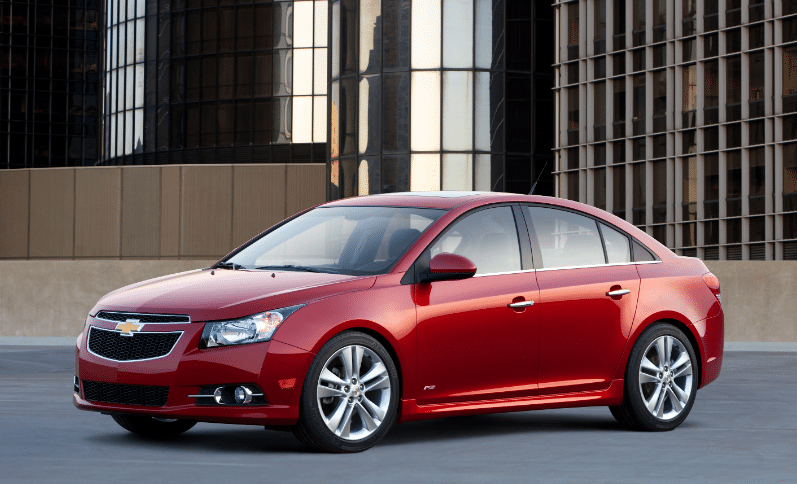Buying a new or used car can be exciting and daunting, especially when negotiating the price. Many people dread haggling with salespeople or private sellers, but you can secure the best deal possible with the right approach. This article will walk you through the crucial steps of negotiating the best price for your next car purchase, ensuring you drive away with a vehicle that suits your needs and budget.
Contents
- 1 Saving Money By Learning To Negotiate
- 2 How To Negotiate The Best Price For A New Or Used Car
- 3 Know Your Budget
- 4 Research The Market Value
- 5 Timing Is Everything
- 6 Leverage Competing Offers
- 7 Be Prepared to Walk Away
- 8 Financing and Extras
- 9 Seal The Deal
- 10 Negotiate The Best Price For A New Or Used Car With These Tips!
Saving Money By Learning To Negotiate

Negotiating the price of a car is an essential part of the car-buying process. By understanding the art of negotiation, you can save thousands of dollars on your purchase. One of the most important aspects of negotiating is conducting thorough research on the market value of the car you are interested in. This will give you a solid foundation for making an informed decision and be a powerful tool during negotiations.
Mastering How To Negotiate for the best car price starts with setting realistic expectations. Understand that the seller has a bottom line, and your goal should be to find a price that works for both parties. Effective communication and active listening are key factors in successful negotiations. Be clear about what you want, listen to the seller’s concerns, and be prepared to make concessions to reach a mutually beneficial agreement.
How To Negotiate The Best Price For A New Or Used Car
It’s no secret that car dealers are often willing to negotiate the price of a vehicle, and private sellers may also be open to it depending on their circumstances. Here’s how you can get the best deal when buying a new or used car:
Know Your Budget

Before you start shopping for a new or used car, it’s essential to determine your budget. This means figuring out how much you can afford to spend on a car without putting yourself in financial strain. Setting a budget will make you less likely to overspend and more likely to make a financially sound decision.
When setting your budget, don’t forget to factor in additional costs, such as taxes, registration fees, and insurance. These expenses can add up, so ensure you have enough room to cover them. Having a clear understanding of your financial limitations will help you stay focused during negotiations and ensure you don’t end up with a car you can’t afford.
Research The Market Value

To negotiate effectively, you need to be well-informed about the car’s market value you’re interested in purchasing. Utilize online resources like Kelley Blue Book, Edmunds, or NADA Guides to determine the average price of the make and model you’re considering. By researching the market value, you’ll better understand what constitutes a fair price.
Knowing the fair market value will give you a strong starting point in your negotiations and help you avoid overpaying for a car. Remember that mileage, condition, and age can significantly impact a car’s value. Be sure to consider these factors when determining a specific vehicle’s market value.
Timing Is Everything

The timing of your car purchase can significantly impact the price you pay. Certain times of the year, month, or even week can be more advantageous for negotiating a better deal. For example, car dealerships often have sales quotas to meet, which means they may be more willing to negotiate at the end of the month, quarter, or year.
Watch for promotions or sales events, such as end-of-year clearance sales or model year-end discounts. These events can provide additional leverage during negotiations, as dealerships may be more motivated to sell cars at discounted prices to meet sales targets or make room for new inventory.
Leverage Competing Offers

One of the most effective strategies for negotiating the best car price is to get quotes from multiple dealerships. By shopping around and comparing offers, you’ll better understand the price range for the specific make and model you’re interested in. Don’t be afraid to let dealerships know you’re comparing offers – they may be more willing to negotiate if they know they’re competing for your business.
Once you have a few competing offers, use them as leverage during negotiations. If a dealership knows you have a better offer from a competitor, they may be more inclined to lower their price to secure your business. However, be prepared to provide evidence of the competing offer, as some dealerships may request proof before making a counteroffer.
Be Prepared to Walk Away

One of the most powerful negotiation tactics is being willing to walk away from a deal. If the seller refuses to meet your price expectations or is unwilling to negotiate, don’t hesitate to leave the table. Remember, other cars and opportunities are always available, and you don’t want to end up overpaying for a vehicle.
By being prepared to walk away, you demonstrate to the seller that you’re serious about getting the best possible price. This tactic sometimes prompts sellers to reconsider their position and make a more favorable counteroffer. Just remain polite and professional, as burning bridges could hurt your chances of negotiating a better deal.
Financing and Extras

When negotiating the price of a car, it’s important to separate the discussion of financing terms and interest rates from the car’s price. Doing so lets you focus on securing the best price for the car without being distracted by financing offers. Once you’ve agreed on a price, you can turn your attention to negotiating favorable financing terms.
During the negotiation process, don’t forget to discuss potential add-ons, warranties, and other extras. These can sometimes be negotiated at a lower price or even included for free. Be sure to ask about any available discounts or incentives that may be available, such as military discounts or cashback offers.
Seal The Deal

Once you’ve reached a satisfactory agreement on price and terms, be prepared to close the deal. This means being ready to deposit or sign a purchase agreement. Before finalizing the transaction, carefully review the paperwork to ensure the contract accurately reflects the negotiated terms. This includes the price of the car, any agreed-upon extras or discounts, and the terms of any financing agreement.
If everything looks good, sign the paperwork and enjoy your new car! Remember, successful negotiation is about balancing getting a great deal and ensuring both parties are satisfied.
Negotiate The Best Price For A New Or Used Car With These Tips!
Negotiating the best price for a new or used car may seem intimidating. Still, with research, preparation, and a little patience, you can save significant money on your purchase. Following the strategies outlined in this article, you’ll be well-equipped to navigate the negotiation process and drive away in the perfect car at the right price. So get ready to put your negotiation skills to the test and secure the best deal for your next car purchase. Happy car shopping!


